
In August 1892, Tommy Dewar set off on a round-the-world journey. This was an age of horse-drawn carriages and steam engines. Pace was slow and days could be long. Dewar’s mission was to establish global distribution for his family’s Scotch whisky distillery, and over two years he would visit 26 countries. Dewar wrote a celebrated book on his adventures and in keeping with Dewar’s tradition, it aged well
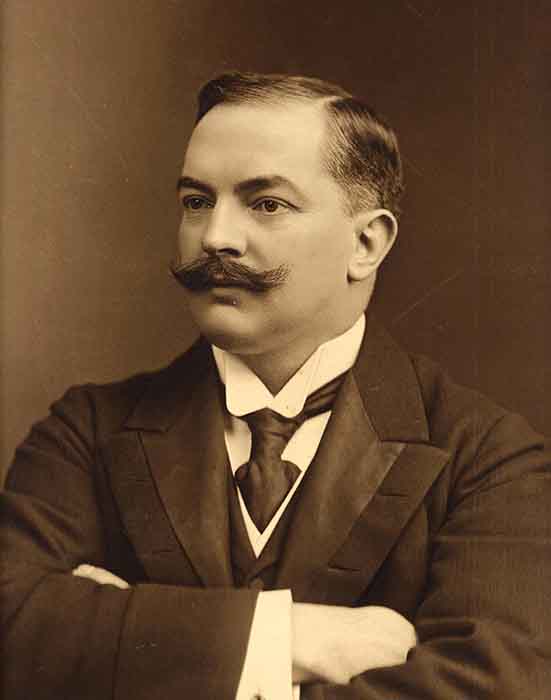
Before the ship sailed by the Statue of Liberty on its way into New York—a passage no traveler ever forgets—Tommy Dewar caught his first sight of the Jersey shore. He asked an American companion what made New Jersey famous and got the reply, “Mosquitoes”. Poor old New Jersey, getting a hard rap more than 125 years ago, as it still often does today. In his book “A Ramble Round the Globe”, Dewar noted in added condemnation: “I found out afterwards that the young lady was right”.
This was Dewar’s first trip to the United States but his Atlantic crossing was just the beginning of an epic adventure. The Scotsman had set out on a cruise liner from Liverpool docks in England and headed west, and west is the direction on which he would continue—more or less—for two years, until his travels returned him home. And while the mosquitoes of New Jersey made their mark, Dewar’s description of arriving in New York is more vivid:
Certainly the approach to New York is a very fine view; the great Statue of Liberty, standing well out as it does, seems to give a welcome to all who are approaching that great and marvellous country—America. As we gradually drew near land, the enthusiasm of the American portion of the passengers grew more intense, and almost wild excitement glared from every eye. Suddenly, without seemingly any warning, there burst out from the shore and on board a waving of miniature ‘Stars and Stripes.’ Almost everybody seemed provided with these little flags, and they waved them wildly and excitedly, with a vigour almost bordering on frenzy… as the stolid Britisher does not care to advertise himself so much, this display is never seen on our shores.
Well, my first impressions of New York were that it was a wonderful place; but I had not been there long before I came to the conclusion that the streets are about the worst I had ever seen, and I am still of that opinion. I suppose the reason is that it is such an awfully busy place, and everybody is so much on the rush striving to make money, they have not time to look after such matters as cleaning the streets or keeping them in good order. It is a busy place, a very busy place indeed; and really everybody seems wild on the one idea—make money. I asked an American, soon after I got there, what was the use of all this rush and bustle and excitement? What came of it? Was there anything attached to it? What did men do after they had made their pile? He simply replied “I guess they die”.
New Yorkers are very hospitable people, and I was treated right royally wherever I went, and was made an honorary member of most of the best clubs.
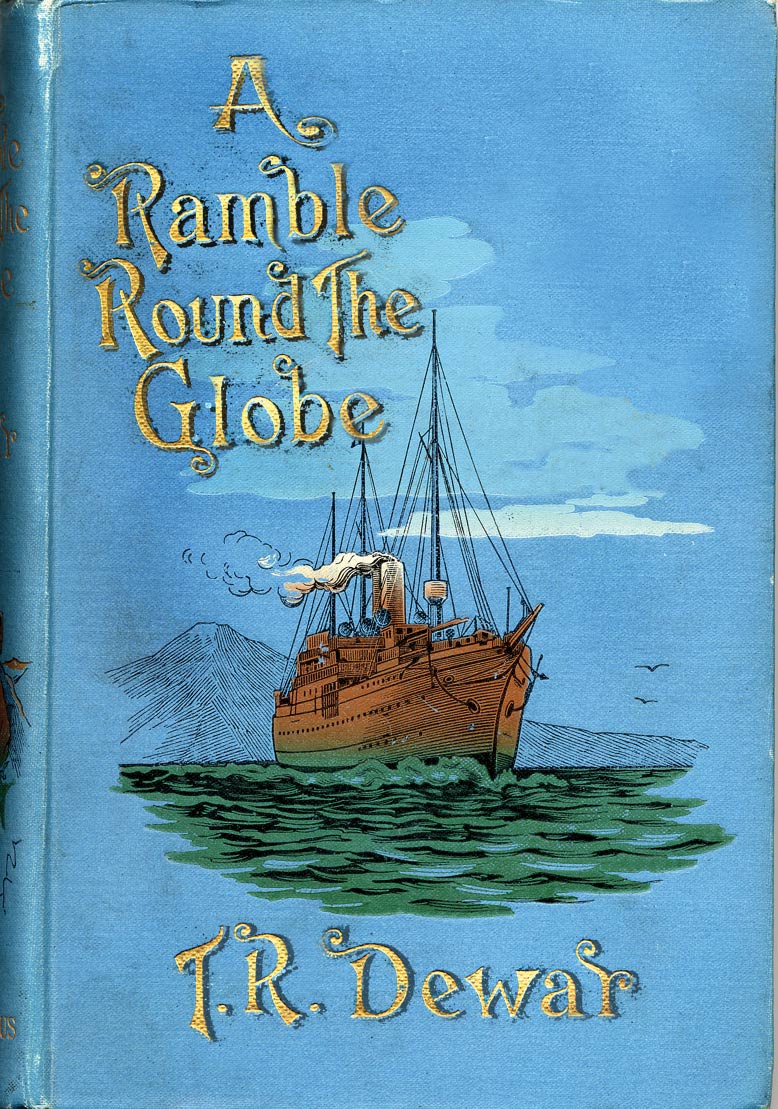
From NYC Dewar headed to Washington DC where he took a tour of the White House. A few months earlier, a keg of Dewar’s Scotch had been delivered to President Benjamin Harrison as a gift from his friend Andrew Carnegie, the Scottish-American industrialist and philanthropist. The Scotch was laced with irony as President Harrison had recently passed the McKinley Tariff, raising the average duty on imports to almost 50 per cent, in a move to protect domestic industry from foreign competition. When the keg of Scotch arrived at the docks in New York uproar spread through the American newspapers that Harrison was not supporting American-distilled Bourbon and rye whiskies. So when the White House tour guide explained that almost everything in the White House was American-made, Dewar interjected:
I mentioned that he must not forget there was something from Scotland in the cellar. At first he looked hurt; but when I gave him my card, and he saw who I was, his countenance relaxed, and the meaning smile which beamed over it proved that he was as aware as I of what had traveled from Perth to Washington some few months previously.
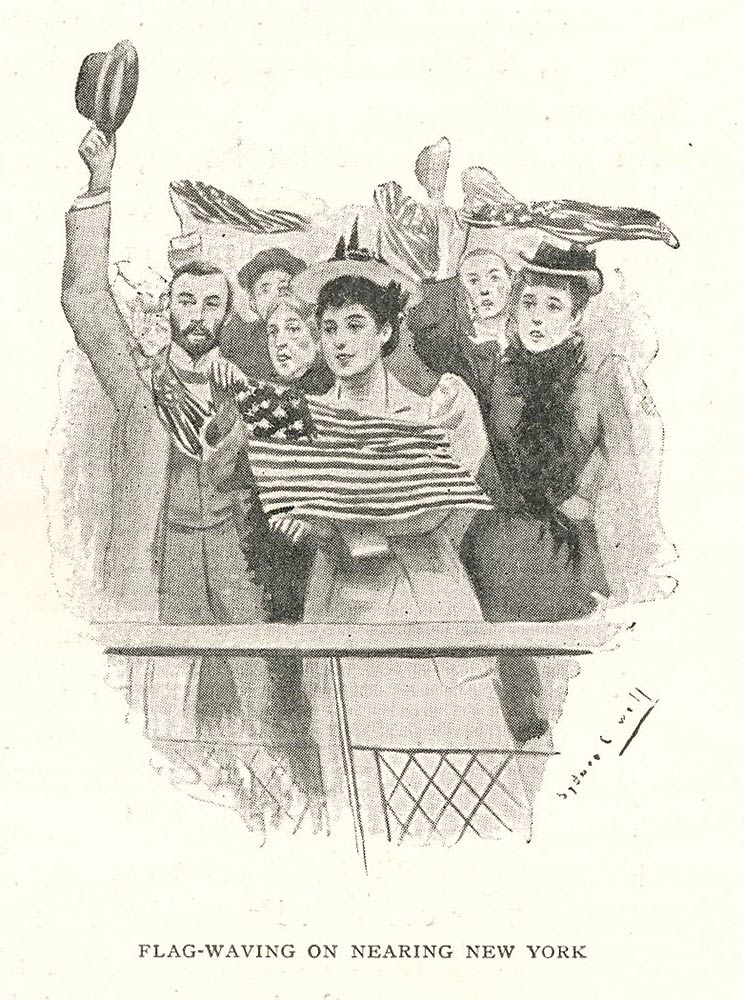
The enjoyment of fine Scotch was well established within the territories of the old British Empire but much less so in the United States, so the first months of Dewar’s travels were well spent on the left side of the Atlantic, even though he came up against prohibition in some states.
Dewar recounts a particular shop visit:
‘Do you sell whisky?’
‘Are you sick mister, or got a medical certificate?’
‘No.’
‘Then I can’t do it. See, this is a prohibition state so I can’t sell it, but I reckon our cholera mixture’ll about fix you. Try a bottle of that.’
To my great astonishment I received a very familiar bottle labelled on one side, ‘Cholera Mixture: a wine-glassful to be taken once every two hours’… the other side [had] the well-known label of a Scotch distillers, whose name modesty requires me to suppress.
American pharmacies never had it so good.
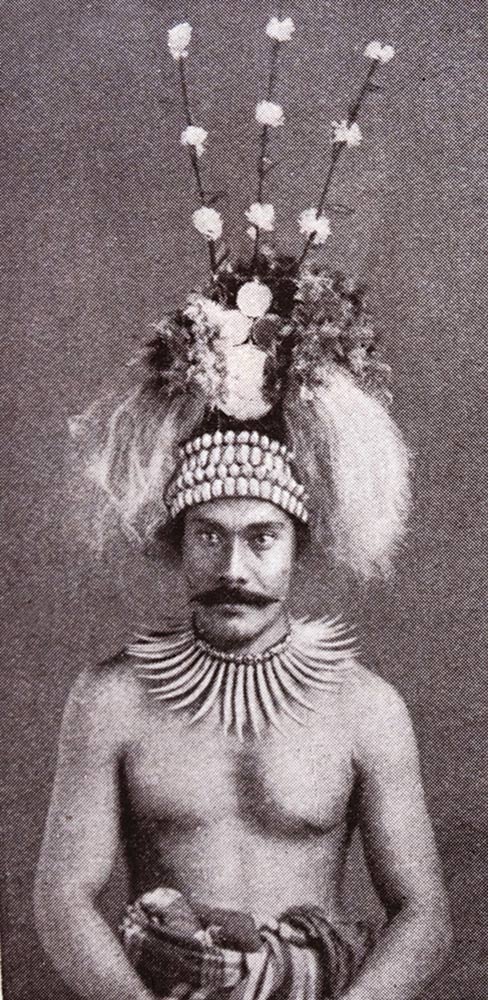
From Washington, Dewar traveled through Philadelphia, Boston, Quebec, Ottawa, Toronto, Pittsburgh, Detroit, Chicago—and plenty more stops in-between—then back into Canada before departing the American mainland from San Francisco.
Having been enchanted by the unspoilt, tropical idyll of Honolulu, Dewar headed down into the South Pacific and to another island paradise, Samoa. He writes:
It was here that I paid my first visit to a crowned head… [and] had a long and friendly chat… also some bananas. It was King Malietoa; and although he couldn’t speak English well, his Majesty and I got on very well indeed… His surroundings may not have been equal to those of European Courts… neither was his residence to be compared with Buckingham Palace; but, nevertheless, he was a king… I pointed out to his Majesty that his clock was wrong, and put it right and wound it up for him. This pleased him so much that he wanted to create me a Knight of the Order of the Cocoanut on the spot; but I explained that our Queen always liked her subjects to consult her before they accepted any distinguished foreign orders, so he allowed me to decline the honour. He is a nice, quiet old man…
…Any one selling or giving alcoholic liquors to the natives is fined or imprisoned, and any native found drunk or drinking is punished severely. The reason for this is that, when they reach a certain stage approaching inebriation… the spirit of their forefathers arises within them; and being such thorough sportsmen, it is more than likely that they would have shots at a white man or… to dine off grilled missionary.
The drink of the island is kava… The ‘distillery’ was a very large hut in the woods, and the working staff consisted of about five-and-twenty natives; but an admiring crowd had followed us to the place, so that there was quite an audience. The operation consists of grinding the root of the kava between stones, then putting it into a bowl and making it into a pulp, then straining it off. Great excitement was caused when I tried my hand at making it… all the ‘staff’, as well as the audience, chattered and laughed so much and got so interested, it was quite amusing. One who spoke a little English said… they all declared I made it as though I had always been in the business.
The poetic and romantic Samoa, with its hundred and one attractions, had to be left; for although I would gladly have followed the example of Robert Louis Stevenson and made the islands my home, to fulfil my mission I had other climates to sample.
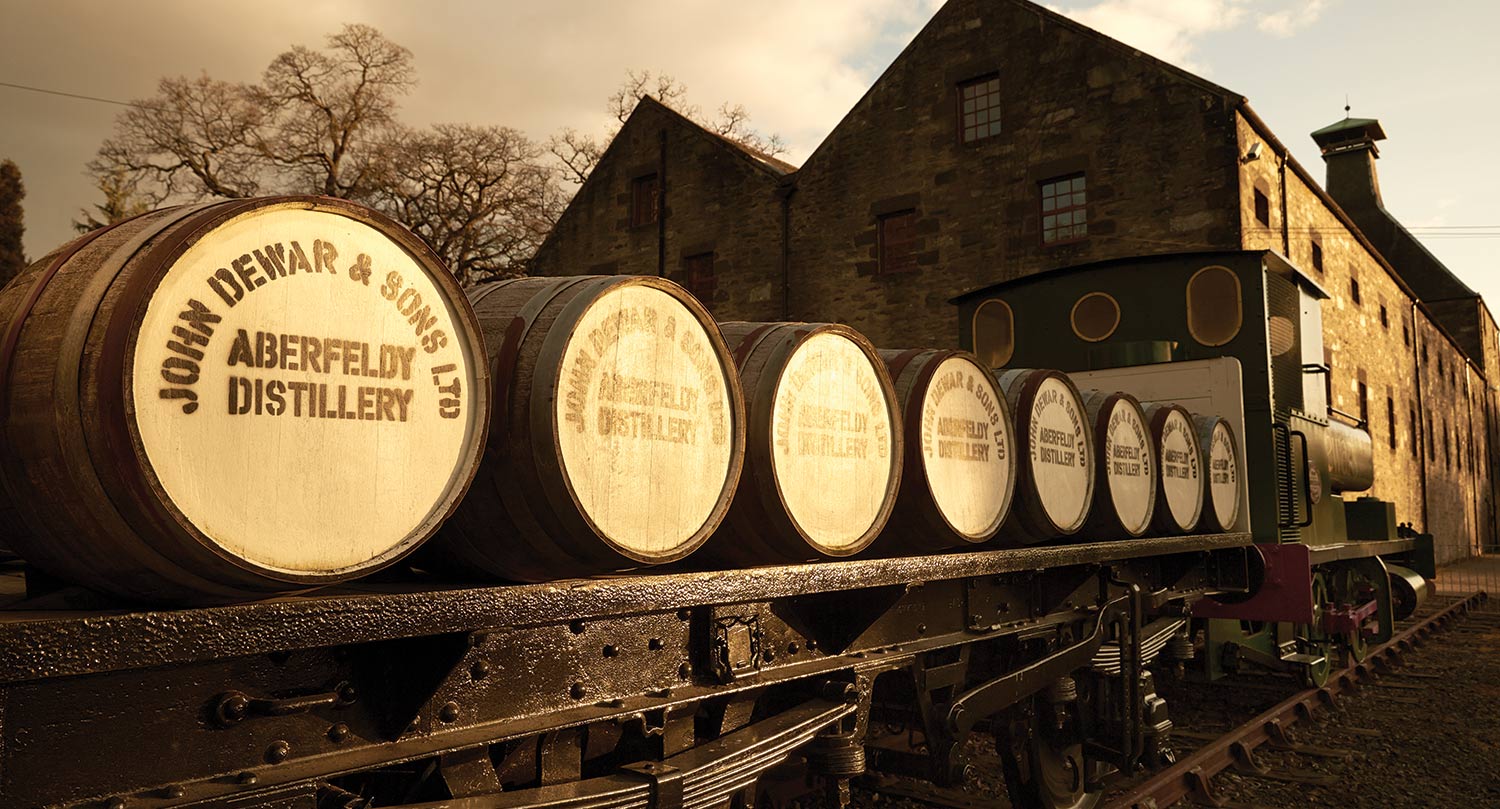
After Samoa, Dewar next set foot on dry land in Auckland, as he discovered New Zealand from north to south. In Tarawera, in the heart of New Zealand’s North Island, Dewar’s journey took an unexpected turn:
Ah, me! That stay at the Tarawera Hotel nearly altered the whole course of my future existence… That landlord had a niece, and she was really a lovely girl. Never before had I thought of the loneliness of a bachelor’s life; never before had I thought of the happiness of a married life; never before had I felt my heart turning to wax of the softest nature… I kept my burning passion to myself. Just before dinner was over I made an excuse and left the room. My mind was made up; I would hazard all, and fling my hand, my heart, my luggage, and myself at the feet of my fair enchantress, and ask her to be mine.
I went out, and, going to the part of the hotel where I thought she would be, I suddenly came upon her—kissing our coachman! I coughed demurely, but they both burst out laughing, and told me they were sweethearts, and were going to be married very shortly! Alas for the hopes of man!
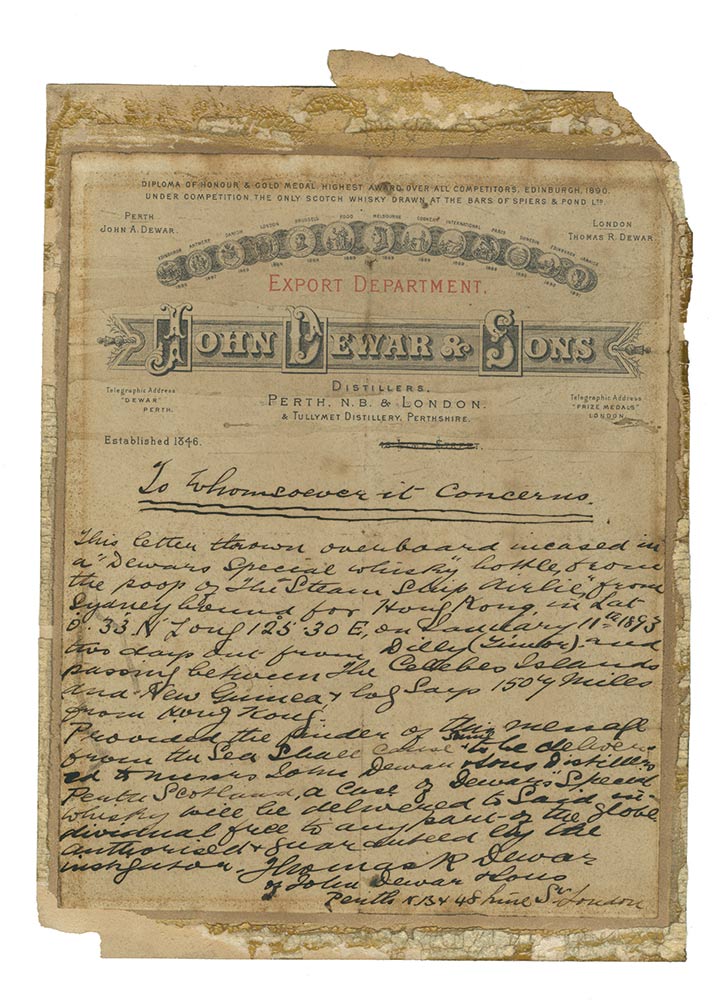
Mr. Louis B. Raycroft, of Boston, Massachusetts, was enjoying a beach stroll along Manila Bay in the Philippines in February 1894. The bay leads out to the South China Sea, where ships regularly sail between the Far East and Australasia, and Raycroft picked up a whisky bottle that had washed up on the beach, and found a letter rolled up inside that read as follows:
To Whomsoever it Concerns,
This letter, thrown overboard, incased in a ‘Dewar’s Special Whisky’ bottle, from the steamship Airlie, from Sydney bound for Hong Kong… on January 11th, 1893, two days out from Dilly (Timor), and passing between the Cellebes Islands and New Guinea… 1,500 miles from Hong Kong. Provided the finder of this message from the sea shall cause same to be delivered to Messrs John Dewar & Sons, distillers, Perth, Scotland, a case of Dewar’s ‘Special’ whisky will be delivered to said individual, free to any part of the globe.
Authorised and guaranteed by the instigator—Thomas R. Dewar, of John Dewar & Sons, Perth… and 48 Lime Street, London.
The letter was duly returned to Dewar’s and the case of Special whisky dispatched, as promised, which was a snip in return for all the newspaper publicity the stunt generated.
An extraordinarily gifted salesman and marketer, Dewar’s “Ramble Round the Globe” took him to 26 countries and enabled him to establish a network of 32 “first class and responsible” agents. In the space of his two-year journey—which cost £14,000 at the time, equivalent to around $1,500,000 in today’s money—Dewar single-handedly expanded the company’s reach from nationwide to worldwide, and such was the volume of orders that sailed in from across every ocean that the company had to move into bigger premises. Dewar’s opened its famous Aberfeldy Distillery in 1898, which remains the heart of Dewar’s production to this day.
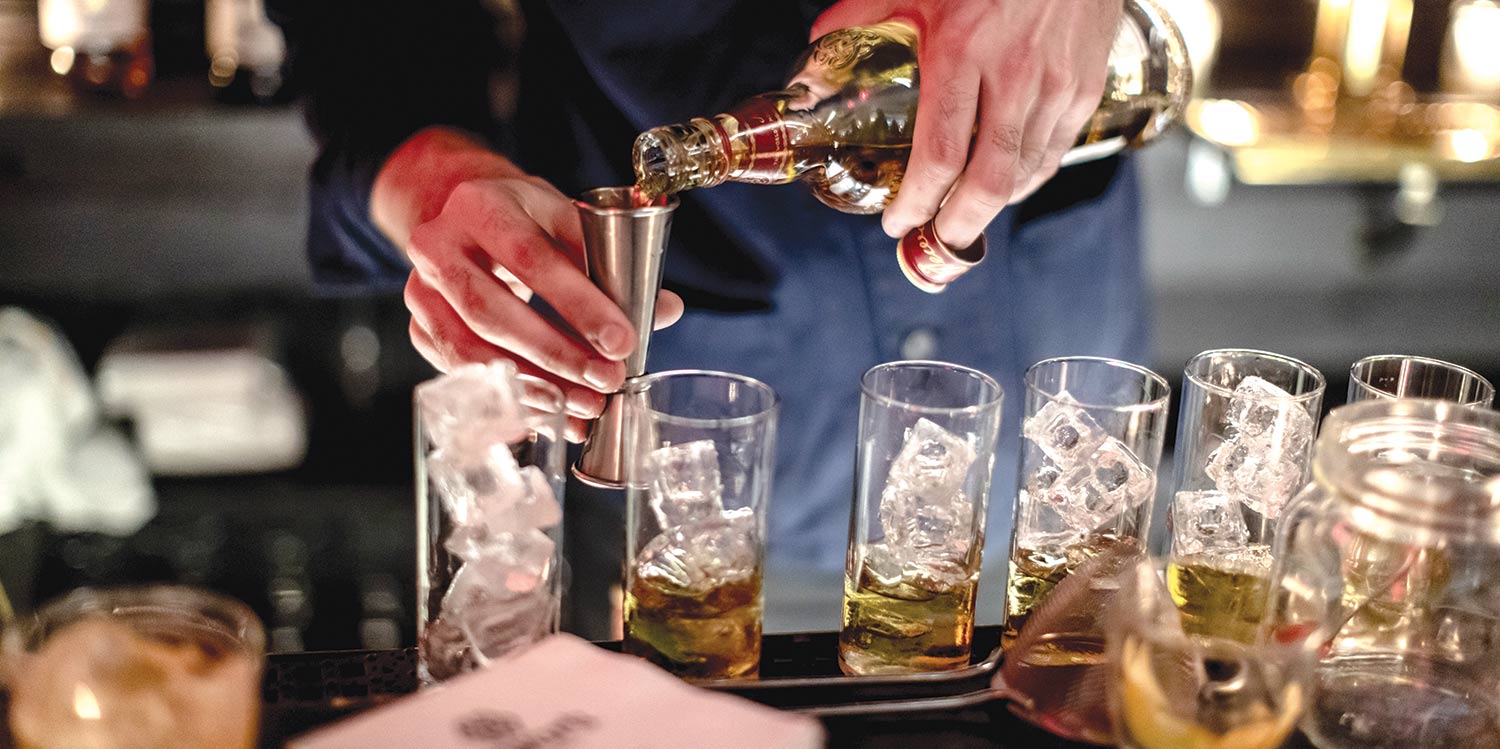
Various theories abound on the origination of the Scotch Highball and plenty of serving suggestions go with them, but it is thought the first Scotch Highball served in the United States was in New York in 1892, while Tommy Dewar was discovering the boisterous charms of Broadway. Dewar and his friends went into a saloon for a “ball”, but on receiving drinks in what one of Dewar’s friends described as “beastly small glasses”, Dewar asked the barman to serve “High balls” in taller glasses. Newspaper coverage from the era supports the story and in 1902 Dewar’s went so far as to trademark the “High ball”.
Today, any spirit combined with a carbonated mixer and served over ice in a tall 8oz glass can be called a Highball, but if he were with us today Dewar would heartily recommend the ingredients be 50ml of Dewar’s White Label, 100ml of soda water and a lemon twist to garnish. The 2:1 ratio of soda and Scotch ensures the rich, honeyed warmth of the White Label reigns, with a sprig of Scottish heather coming through.
Follow Us On


| Cookie | Duration | Description |
|---|---|---|
| cookielawinfo-checkbox-analytics | 11 months | This cookie is set by GDPR Cookie Consent plugin. The cookie is used to store the user consent for the cookies in the category "Analytics". |
| cookielawinfo-checkbox-functional | 11 months | The cookie is set by GDPR cookie consent to record the user consent for the cookies in the category "Functional". |
| cookielawinfo-checkbox-necessary | 11 months | This cookie is set by GDPR Cookie Consent plugin. The cookies is used to store the user consent for the cookies in the category "Necessary". |
| cookielawinfo-checkbox-others | 11 months | This cookie is set by GDPR Cookie Consent plugin. The cookie is used to store the user consent for the cookies in the category "Other. |
| cookielawinfo-checkbox-performance | 11 months | This cookie is set by GDPR Cookie Consent plugin. The cookie is used to store the user consent for the cookies in the category "Performance". |
| viewed_cookie_policy | 11 months | The cookie is set by the GDPR Cookie Consent plugin and is used to store whether or not user has consented to the use of cookies. It does not store any personal data. |